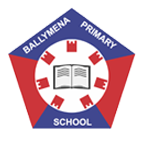Thinking Skills
Ballymena Primary School has set out on an ambitious journey to place cognitive education or thinking skills at the heart of learning and teaching.
Why teach thinking?
The children we are presently educating will be retiring around 2070. We have no idea what the world will be like then, and according to many experts, a good number of the jobs our children and young people will be engaged in do not even exist at present. In such an ever-changing world all children need to develop cognitive competencies which enable them to adapt to a variety of educational, technical, social and cultural changes. Content knowledge becomes rapidly obsolete nowadays. Therefore, teachers need to teach all children how to think and activate their cognitive functions. It is often better to teach children to think properly in order that they become independent, life-long learners, rather than attempt to teach all the currently available knowledge.
What is cognitive education?
Cognitive education deals with the gathering, elaborating and producing of information. It is not the same as the learning of academic skills or content knowledge, important though these aspects of education are. It teaches, rather, the HOW of learning. It is concerned with the prerequisites of good thinking, by promoting the need to be systematic, to use concepts, to recognize characteristics, to be precise, to combine, to relate, to compare, to plan, to hypothesize, to question, to find rules, to apply, to verify, etc. Good thinking also recognises the motivational and emotional aspects of learning, through the development of positive "habits of mind" and creativity. Cognitive education is thus mainly concerned with activating those aptitudes and attitudes which help each child to benefit fully from their school experience through equipping them with the necessary tools to think deeply, to understand more and to learn better.
Our thinking tools
|
|
|
|
Centre for Cognitive Education
Thinking Actively in a Social Context






